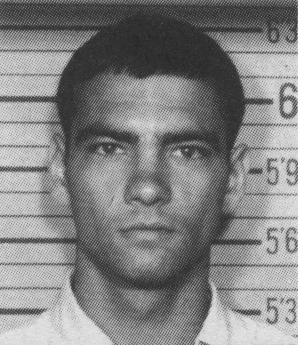A pardon is a government decision to allow a person to be relieved of some or all of the legal consequences resulting from a criminal conviction. A pardon may be granted before or after conviction for the crime, depending on the laws of the jurisdiction.
The Fuerzas Armadas de Liberación Nacional was a Puerto Rican clandestine paramilitary organization that, through direct action, advocated independence for Puerto Rico. It carried out more than 130 bomb attacks in the United States between 1974 and 1983, including a 1975 bombing of the Fraunces Tavern in New York City that killed four people.
Carlos Anibal Vignali had his federal prison sentence commuted by President of the United States Bill Clinton just prior to leaving office, as a part of a group of commutations and pardons. At the time, he was serving the sixth of 15 years in prison for organized cocaine trafficking. Carlos Vignali's attorney during his trial and sentencing was prominent Minnesota attorney, Ronald I. Meshbesher.
The Office of the Pardon Attorney, part of the United States Department of Justice, assists the president of the United States in his exercise of executive clemency as authorized by Article II, Section 2, of the US Constitution. The office is headed by the pardon attorney, with the current incumbent being Elizabeth G. Oyer, appointed by President Joe Biden in 2022. It operates under the general oversight of the deputy attorney general and in consultation with the attorney general or their delegate to review and process clemency applications.

Hugh Edwin Rodham is an American lawyer and former Democratic Party politician who is the only surviving brother of former New York Senator, First Lady, and Secretary of State, Hillary Rodham Clinton, and the brother-in-law of former U.S. President Bill Clinton.

Almon Glenn Braswell was a convicted felon business owner who founded Gero Vita International Inc. He is most noted for being one of the 140 people pardoned in the Bill Clinton pardons controversy of January 2001.

Sholam Weiss is an American convicted fraudster.
Anthony Dean Rodham was an American consultant and businessman who was the youngest brother of Hillary Clinton and brother-in-law of former U.S. President Bill Clinton.
The Scooter Libby clemency controversy arose when U.S. President George W. Bush commuted the prison sentence of Scooter Libby, the former Chief of Staff to Bush's vice president, Dick Cheney, on July 2, 2007. It resulted in a hearing, "The Use and Misuse of Presidential Clemency Power for Executive Branch Officials", held July 11, 2007, by the full Committee on the Judiciary of the U.S. House of Representatives. The hearing was intended to "explore the grave questions that arise when the Presidential clemency power is used to erase criminal penalties for high-ranking executive branch employees whose offenses relate to their work for the President", as well as to assess the consequences of the perjury and obstruction of justice of which vice-presidential Chief of Staff Lewis Libby was convicted March 6, 2007.

Oscar López Rivera is a Puerto Rican activist and militant who was a member and suspected leader of the Fuerzas Armadas de Liberación Nacional Puertorriqueña (FALN), a clandestine paramilitary organization devoted to Puerto Rican independence that carried out more than 130 bomb attacks in the United States between 1974 and 1983. López Rivera was tried by the United States government for seditious conspiracy, use of force to commit robbery, interstate transportation of firearms, and conspiracy to transport explosives with intent to destroy government property.
Alejandrina Torres is a Puerto Rican woman whose trial as a member and role in Fuerzas Armadas de Liberación Nacional (FALN) resulted in her conviction and sentencing of 35 years for seditious conspiracy. Torres was linked to FALN, which claimed responsibility for 100 bombings and six deaths. Her sentence was commuted by President Bill Clinton in 1999.

Carlos Alberto Torres is a militant Puerto Rican nationalist. He was convicted and sentenced to 78 years in a U.S. federal prison for seditious conspiracy, conspiring to use force against the lawful authority of the United States. He served 30 years and was released on parole on July 26, 2010.
Edwin Cortes was a Puerto Rican nationalist and member of the FALN who received a sentence of 35 years for seditious conspiracy and other charges. He was sentenced on October 5, 1985, and incarcerated in a U.S. federal prison. However, he was released early from prison, after President Bill Clinton extended a clemency offer to him on February 19, 1999.
Juan Enrique Segarra-Palmer is a Puerto Rican activist and one of the founders of the pro-independence group Los Macheteros.
Federal pardons in the United States are granted only by the U.S. president, pursuant to their authority under the U.S. Constitution to grant "reprieves and pardons for offenses against the United States". Pardons extend to all federal criminal offenses, except in cases of impeachment, and entail various forms of clemency, including commuting or postponing a sentence, remitting a fine or restitution, delaying the imposition of a punishment, and providing amnesty to an entire group or class of individuals. The pardon power extends to cases involving courts-martial against members of the United States Armed Forces, including the Army, the Navy, the Air Force, the Marine Corps, the Coast Guard, and the Space Force.








